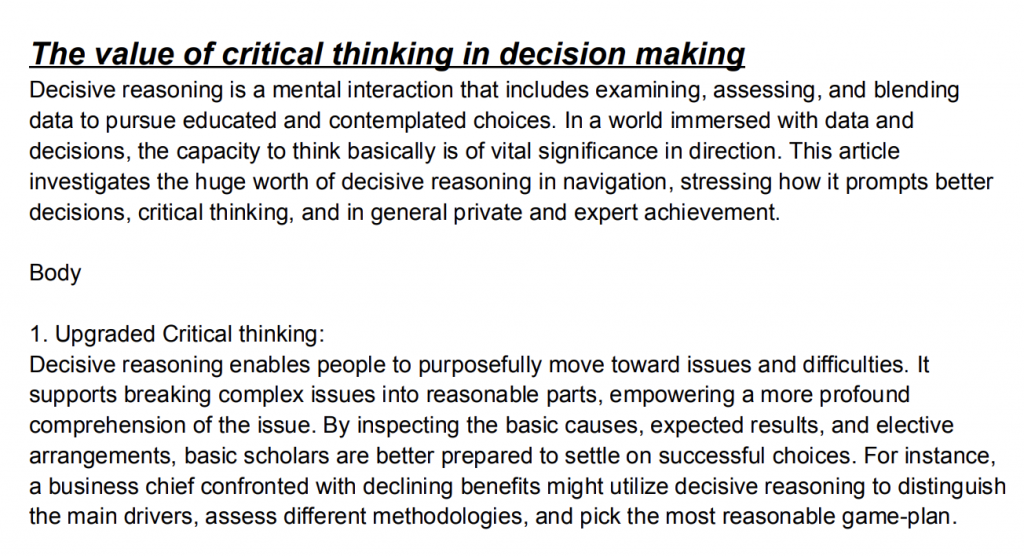Critical Thinking in Decision-Making
Summary:
The essay “The Value of Critical Thinking in Decision Making” explores the indispensable role that critical thinking plays in making informed and effective decisions. It delves into the significance of questioning assumptions, evaluating evidence, and considering multiple perspectives when faced with complex choices. The essay highlights how critical thinking not only enhances problem-solving but also promotes better judgment, clearer communication, and the ability to navigate uncertainty and ambiguity. It emphasizes the practical applications of critical thinking in various aspects of life, from personal choices to professional decision-making, illustrating its value in promoting rational, well-informed, and ethical decisions. Ultimately, the essay underscores the vital role of critical thinking as a cornerstone of sound decision-making in a world filled with challenges and choices.
Excerpt:
Critical Thinking in Decision-Making
The value of critical thinking in decision making
Decisive reasoning is a mental interaction that includes examining, assessing, and blending
data to pursue educated and contemplated choices. In a world immersed with data and
decisions, the capacity to think basically is of vital significance in direction. This article
investigates the huge worth of decisive reasoning in navigation, stressing how it prompts better
decisions, critical thinking, and in general private and expert achievement.
Body
1. Upgraded Critical thinking:
Decisive reasoning enables people to purposefully move toward issues and difficulties. It
supports breaking complex issues into reasonable parts, empowering a more profound
comprehension of the issue. By inspecting the basic causes, expected results, and elective
arrangements, basic scholars are better prepared to settle on successful choices. For instance,
a business chief confronted with declining benefits might utilize decisive reasoning to distinguish
the main drivers, assess different methodologies, and pick the most reasonable game-plan.
2. Informed Navigation: Informed choices are those grounded in proof and a complete comprehension of the circumstance. Decisive reasoning aides people accumulate and evaluate applicable data, separate reality from assessment, and think about alternate points of view.


Reviews